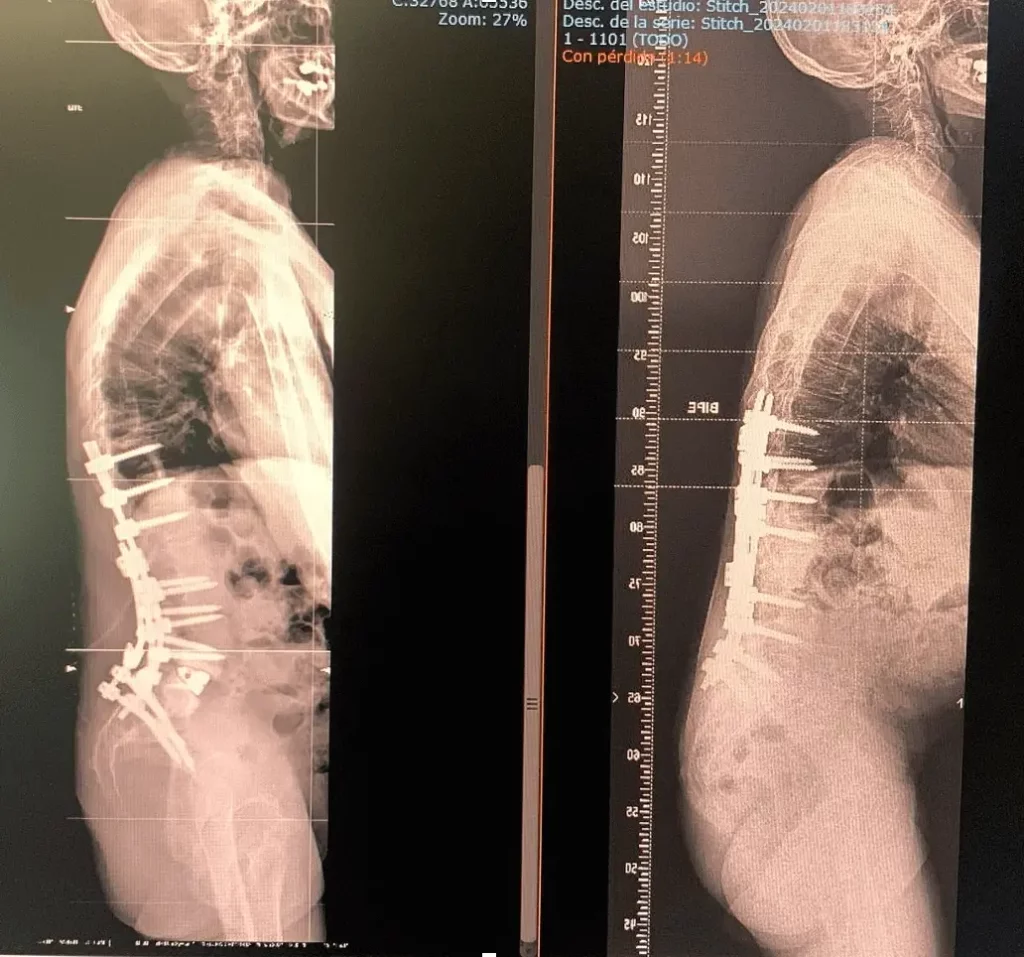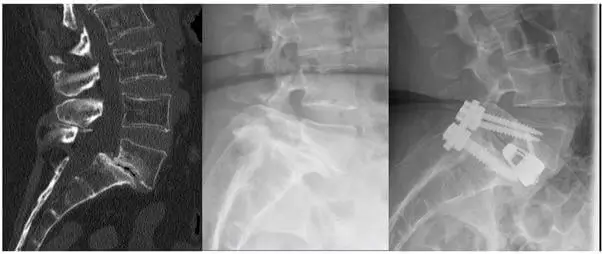Thoracolumbar Deformity Correction: Surgical Treatment, Technology, and Expertise
Thoracolumbar spinal deformities can significantly impact a patient’s quality of life—affecting posture, balance, mobility, and often causing chronic pain. In recent years, spinal surgery has made tremendous advances, offering better clinical outcomes, shorter recovery times, less surgical trauma, and fewer risks.

What Is a Thoracolumbar Deformity and When Should It Be Treated?
Thoracolumbar deformities involve structural abnormalities of the spine that affect both the thoracic and lumbar regions. Conditions may present as scoliosis, kyphosis, or complex curves causing sagittal and/or coronal imbalance. Surgical intervention is typically recommended when the deformity causes neurological impairment, persistent pain unresponsive to conservative treatments, or disabling postural changes.
As Dr. Vicenç Gilete, a neurosurgeon with over 25 years of experience, explains: “Spinal deformity surgery becomes essential when a patient loses functionality or experiences a decline in quality of life.”
Comprehensive Diagnosis and Personalized Surgical Planning
Accurate diagnosis is critical. This includes standing radiographs, MRI, CT scans, and sagittal balance analysis. At Complex Spine Institute, we employ advanced 3D planning technologies that allow us to precisely anticipate the necessary corrections and associated risks.
Dr. Augusto Covaro, a specialist in complex approaches and minimally invasive techniques, emphasizes: “A surgical plan should go beyond correcting a curve—it must restore the spine’s overall functional harmony.”
Surgical Options for Thoracolumbar Deformity Correction
Depending on the type and severity of the deformity, several surgical techniques can be used:
- Instrumented fusions: Pedicle screws and rods stabilize the spine.
- Osteotomies: Controlled vertebral cuts correct severe angulations.
- Anterior, posterior, or combined approaches: Provide optimal access for 3D reconstruction.
- Navigation and robotic technology: Enhance the accuracy of implant placement.
At Complex Spine Institute, we prioritize minimally invasive techniques when appropriate, aiming to reduce blood loss, complications, and hospital stays.

Postoperative Outcomes and Prognosis
After surgery, patients typically regain physiological posture, experience pain relief, and achieve greater independence. Personalized rehabilitation is key to the recovery process and is carefully designed by our multidisciplinary team.
Our experience shows that patients who receive a comprehensive and continuous care approach tend to achieve the most favorable outcomes.
Complex Cases and Revision Surgeries
We frequently manage patients who have undergone unsuccessful prior surgeries. In such cases, our extensive experience and advanced techniques enable us to address residual deformities, implant misplacement, or unresolved spinal imbalances.
Dr. Gilete explains: “Our role is not just technical—we must also understand why the first surgery failed to ensure the next one succeeds.”
Expertise and International Patient Care
Led by Dr. Covaro and Dr. Gilete, both internationally trained with hundreds of complex cases successfully treated, Complex Spine Institute has become a reference center for spinal deformity care. We offer both in-person and virtual consultations, with multilingual support for international patients.
State-of-the-Art Medical Technology
We utilize intraoperative navigation, 3D CT scanning, endoscopy, and robotic techniques to achieve maximum surgical precision. These tools help minimize risk and optimize functional outcomes. Our pre- and postoperative protocols ensure continuous patient monitoring.
When to Seek Evaluation
If you suffer from chronic pain, postural abnormalities, walking difficulties, early fatigue, or a history of unsuccessful spinal surgery, a specialist evaluation is essential. Not all deformities require surgery, but early diagnosis allows for tailored therapeutic strategies.
You can request an initial evaluation either remotely or in person at our Barcelona center. Our medical team and international coordination staff are here to support you every step of the way.
Schedule a consultation today —no commitment required—and let us assess your case with expertise, empathy, and professionalism.